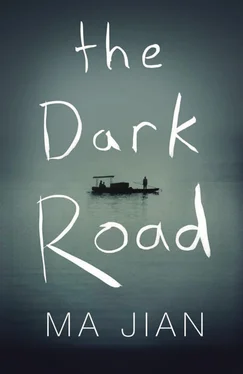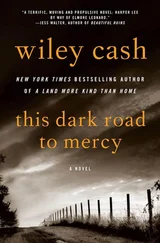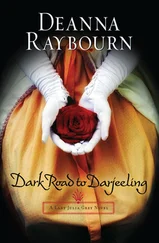‘But who can afford to have more than one child these days, the way school fees and medical fees keep rising?’ Hua says.
‘So how many children do you have, Hua?’ Meili asks, glancing down at the braised duck simmering on the stove.
‘Four. Only two of them are legally registered, though.’
‘I’ve told you, Hua, you must hurry up and buy permits for the other two or they won’t be able to go to school,’ Gu says.
‘If you do decide you want to go ahead with the sale, come and speak to us,’ Hua says to Meili. ‘Don’t go to that guy who runs the scrapyard. He’s a nasty crook. If the babies are alive, he sells them to traffickers, and if they’re dead he sells them to restaurants.’
‘I would never sell my own child,’ Meili says, softly rocking Waterborn as she starts to cry again. ‘If she does turn out to be mentally handicapped, I won’t mind — I’d be happy to look after her for the rest of my life.’
‘We just want to help you secure a good future for your daughter, and for your family as well,’ Gu says. ‘If you sell her, everyone will benefit.’
‘Yes, it will be a win — win situation, just like President Jiang Zemin said to the US in the international trade discussions last week,’ Hua says. ‘Come on now, let’s go and choose our eggs.’
When the sisters walk past her, they seem to give off more heat than the scorching pot on the stove.
Keywords: Flea-Ridden, Magnet,
KEYWORDS: flea-ridden, magnet, scum, beautification fee, gangsters, Custody and Repatriation Centre.
RETURNING TO THE hut and seeing Nannan sitting alone under the porch and the boat gone, Meili knows at once that Kongzi has gone to give Waterborn away.
‘Where’s Daddy, Nannan?’ she shouts.
‘He said he’s taking Waterborn on a trip. He said he’ll be back very soon, and when he comes back I’ll be his only daughter and he’ll only love me.’
‘The evil bastard! I know what he’s done — he’s gone to sell her to a Welfare Office! Kongzi, you monster! You force me to get pregnant, then you take my baby from me. You’re worse than the Communist Party. I despise you. I never want to set eyes on you again!’ Shaking with rage and howling curses, she kicks out at the wok and bowls on the ground, stamps on the peanut oil and mosquito coils she just bought in the village, then turns round and marches away into the fields. The ducks in the pond flap their wings and take flight.
‘Mummy, come back, I’m frightened…’ Nannan cries out, but Meili is so delirious with rage she can’t hear her. She strides across the fields all the way to the public road, then stops a passing minibus and jumps aboard. She wants to go as far away as possible. No — she wants to return to Nuwa Village, to her birthplace. She finds a seat at the back, buries her face in her scarf and weeps. May you get struck by lightning, Kongzi! she mutters under her breath. All these years you drone on about benevolence, righteousness, propriety, wisdom, then you go and sell your own daughter! How could I have married such a monster?… When she met him at seventeen, she believed marriage was for ever, that the government protects and cares for the people, and that husbands protect and care for their wives. But as soon as she got married, these naive beliefs were shattered. She discovered that women don’t own their bodies: their wombs and genitals are battle zones over which their husband and the state fight for control — territories their husbands invade for sexual gratification and to produce male heirs, and which the state probes, monitors, guards and scrapes so as to assert its power and spread fear. These continual intrusions into her body’s most intimate parts have made her lose her sense of who she is. All she is certain of is that she is a legal wife and an illegal mother. I’d be better off dead, she mumbles to herself. I should throw myself into the Yangtze and join Happiness on the riverbed. With a jolt, she remembers Nannan and wishes she’d had the presence of mind to bring her with her. She decides to spend the night in whatever town the minibus is taking her to, then to sneak back to the hut in the morning and fetch Nannan.
Only at night, when the minibus pulls into the terminal and she steps off, goes outside and looks at the dark road running downhill, does she begin to feel helpless and alone. On a dimly lit fruit stall, peeled pineapples gleam like freshly plucked ducks. The pavements are littered with the trampled pulp of chewed sugar cane. Sensing that the road leads to the centre of town she follows it down. It stretches on through the darkness, desolate as a barren field. At last, in the distance, she sees neon signs flashing from tall buildings, and begins to walk towards them as though pulled by a magnet.
The road bends and becomes wider and brighter. There are cars and buses now. After crossing two junctions, waiting for the pedestrian lights to turn green, she begins to realise that this is not a town but a city. She must ask someone where the train station is. She’d like to go home now and see her parents. The thought of being fined or arrested doesn’t frighten her any more. If there’s no train to Nuwa, she’ll return to Guai Village in the morning, take Nannan and a few belongings, and set off for Heaven Township, leaving Kongzi to fend for himself. She approaches a small kiosk to ask for directions. When she sees the red telephone on the counter, she has a longing to phone Weiwei and pour her heart out to him, but she doesn’t have his number on her. She thinks of phoning Kongzi’s parents, but is afraid the line might be bugged, and besides, she’s not in the mood to speak to them. Clubfoot has a telephone too now, as well as a laptop computer and satellite TV, but she has forgotten his number. The only other person in Kong Village whose number she can remember is Kong Zhaobo. He’s opened a dairy farm that supplies milk to an infant formula company. She phoned him a couple of times in Guai Village, asking if he could give her brother a job.
‘Want to use the phone?’ the vendor asks, leaning over the counter. ‘Domestic calls are four jiao a minute. Dial the area code first. The list’s up there.’
‘It’s a Hubei number,’ says Meili, as she dials the last digit. As soon as the ringing tone sounds, she immediately regrets making the call. Kong Zhaobo says hello in his heavy accent.
‘It’s Meili,’ she says, feeling drops of milk start to leak from her full breasts. ‘You mustn’t tell anyone I phoned.’
‘Won’t tell a soul, I promise. Where are you?’
‘I don’t know. I’ve just got off a bus.’
‘What’s up?’
‘Nothing. I just wanted to hear how things are in the village.’
‘Oh, there’ve been big changes. You know Kong Dufa who took over your husband’s teaching post? Slimy bastard. Well, he’s village head now. His son graduated from university last summer and has got a job at the County Transport Bureau. You won’t believe it: the village has become a tourist destination! Six coachloads of visitors arrive every day. My neighbour has built a side extension and opened a restaurant called the Happy Farmer. And that painter, Old Cao, who created the mosaic mural for you. Well, his son, Cao Niuniu, has done well. He’s a successful artist now. Lives in Beijing. He came back to the village a few months ago and bought the Sky Beyond the Sky Hotel and has turned it into a painters’ colony. He’s got a hundred artists living there, churning out copies of foreign masterpieces that he sells back in Beijing. And you heard that Kong Qing’s wife was arrested for complaining about her forced abortion? Yes, she’s still locked up in the mental asylum… Five of the villagers who were arrested in the riots are still in jail. One poor sod is serving fourteen years. Kong Guo was released last month, thank goodness.’
Читать дальше












